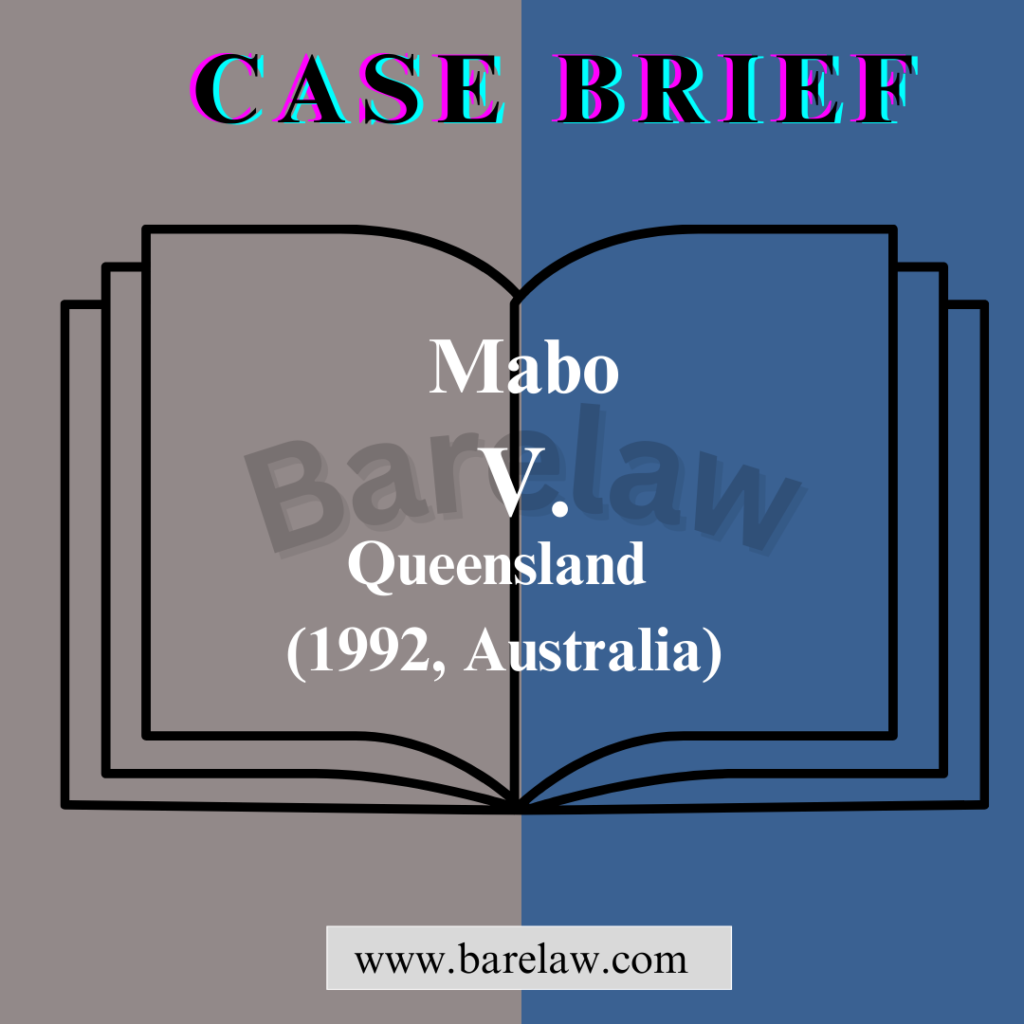
Table of Contents
Mabo v. Queensland: Landmark Case for Indigenous Land Rights
Mabo v. Queensland: Landmark Case for Indigenous Land Rights
The pivotal case of Mabo v. Queensland (No. 2) (1992) reverberates as a watershed moment in Australian legal history, catalyzing a transformative shift in recognizing and upholding the land rights of Indigenous Australians. This article delves into the profound implications of the Mabo case, unraveling how it established the groundbreaking legal doctrine of native title and its enduring impact on the Indigenous communities and the nation as a whole.
Roots of Injustice: Historical Context
Australia’s colonial history is marked by dispossession, marginalization, and profound injustices inflicted upon its Indigenous inhabitants. The dispossession of traditional lands and territories was central to this tragic narrative. For generations, Indigenous Australians struggled against systemic discrimination and denial of their ancestral connections to the land, setting the stage for a profound legal confrontation that would challenge the very foundations of Australian land law.
The Mabo Challenge: Challenging Terra Nullius
At the heart of the Mabo case was the audacious challenge to the long-held legal doctrine of terra nullius, which asserted that Australia was deemed “nobody’s land” prior to British colonization. This doctrine conveniently ignored the rich cultural heritage and custodial relationships that Indigenous communities held with their ancestral lands for millennia. Eddie Koiki Mabo, a Torres Strait Islander, along with his legal team, mounted an impassioned legal battle to dismantle this fallacious premise and affirm the rights of Indigenous peoples to their traditional territories.
Recognition of Native Title: A Paradigm Shift
The verdict in Mabo v. Queensland (No. 2) marked a seismic shift in legal perspectives. The High Court of Australia ruled that the doctrine of terra nullius was unjust and rejected its application to Indigenous land tenure. In its place, the court recognized the concept of native title – a legal recognition of the enduring relationship between Indigenous communities and their ancestral lands. This landmark decision acknowledged the significance of traditional ownership, customs, and spiritual connections, thereby affirming the land rights of Indigenous Australians.
Implications and Challenges: Forging New Frontiers
The Mabo decision was not only a triumph for justice but also a catalyst for a new era of legal and societal transformation. The ruling triggered a wave of legal claims and negotiations, as Indigenous groups sought to assert their native title rights and reclaim ownership of their lands. The case inspired a fervent dialogue on reconciliation, cultural preservation, and the need to redress historical injustices.
However, the journey toward recognizing Indigenous land rights was far from straightforward. The implementation of native title rights encountered practical and procedural challenges, including complexities surrounding land tenure, coexistence with non-Indigenous landholders, and navigating the intricacies of Australian land law.
Continuing the Legacy: Beyond Mabo
The legacy of Mabo v. Queensland (No. 2) extends far beyond the confines of the courtroom. The case prompted legislative reforms and policy shifts aimed at acknowledging the rights and aspirations of Indigenous communities. The Native Title Act of 1993 was enacted in response to the Mabo decision, outlining the legal framework for recognizing and protecting native title rights and interests.
The case also ignited a broader conversation on reconciliation, acknowledging historical wrongs, and fostering a more inclusive Australian identity. It invited society to reckon with the profound implications of colonial history and to forge a path toward healing and mutual respect.
Conclusion
Mabo v. Queensland (No. 2) stands as a landmark testament to the power of justice and the capacity for legal decisions to reshape societal norms and values. This watershed case shattered the chains of terra nullius and ignited a paradigm shift in Australian law, recognizing and affirming the land rights of Indigenous Australians. The legacy of Mabo endures, as the nation continues its journey toward reconciliation, equality, and the recognition of the profound cultural connections that bind Indigenous communities to their ancestral lands. The case serves as a potent reminder that justice is an evolving journey, one that demands vigilance, empathy, and an unwavering commitment to the principles of equity and human dignity.





